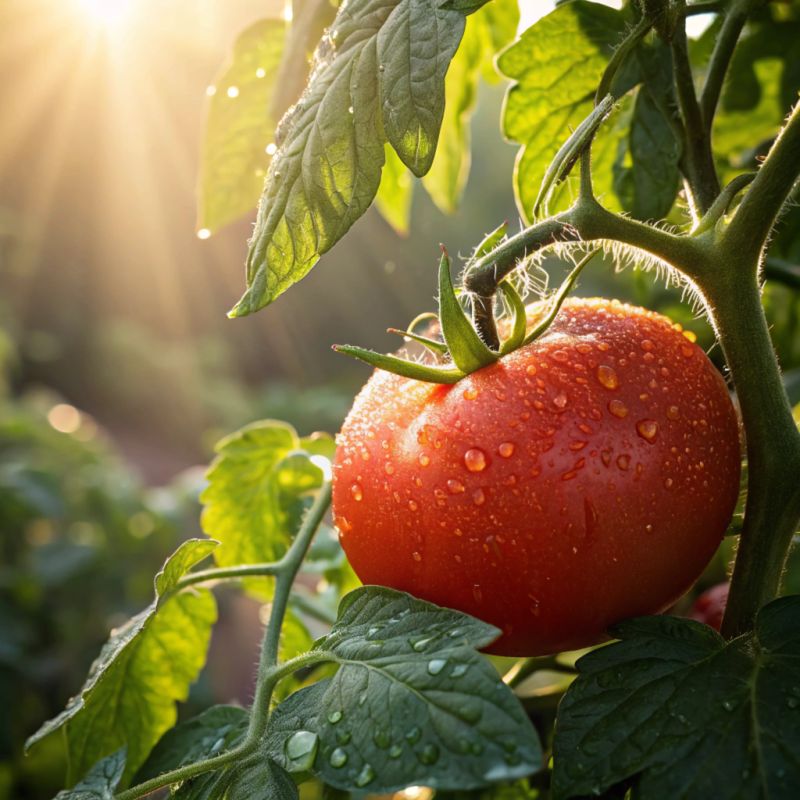
Image credits: Redraft.ai
Background
As the global climate continues to shift, farmers and scientists face a daunting challenge: how do we ensure that crops can thrive in rising temperatures? Among the many affected, tomatoes—a staple in diets worldwide—are particularly vulnerable. But thanks to groundbreaking research, we’re getting closer to a solution that could transform agriculture and food security.
The Problem: Tomatoes Under Stress
Tomatoes, like many plants, rely on a delicate fertilization process to produce fruit. Central to this process are pollen tubes, tiny structures that grow within the plant to deliver genetic material and ensure successful fertilization. However, rising temperatures disrupt this process, leaving many tomato plants struggling to bear fruit. The result? Lower yields and higher pressure on farmers and global food systems.
The Discovery: Heat-Tolerant Tomatoes to the Rescue
A recent study has shed light on why some tomato varieties can handle the heat better than others. The secret lies in their pollen tubes’ ability to grow under high temperatures. For most plants, heat stress can inhibit pollen tube growth, halting fertilization. But certain heat-tolerant tomato varieties have evolved a way to keep their pollen tubes growing strong, even when the mercury rises.
The Science Behind the Resilience
So, what’s the magic formula? It’s all about balance. Researchers found that heat-tolerant tomatoes maintain a precise level of reactive oxygen species (ROS)—compounds that, in controlled amounts, play a critical role in cellular function. Alongside ROS, these plants also regulate compounds like callose, a carbohydrate that strengthens pollen tube walls. Together, these factors create a robust system that allows fertilization to proceed, even in challenging conditions.
Why This Matters: A Blueprint for the Future
This discovery is more than just a win for tomatoes. It’s a blueprint for developing crops that can thrive in a warming world. By understanding and applying these natural mechanisms, scientists can breed or genetically engineer other heat-tolerant crops, paving the way for resilient agriculture.
This is critical not only for sustaining global food supply but also for empowering farmers, especially in regions most vulnerable to climate change. With more heat-tolerant crops, farmers could maintain productivity, reduce losses, and adapt to increasingly unpredictable weather patterns.
A Brighter Future for Agriculture
The implications of this research are vast. By unlocking the secrets of heat-tolerant tomatoes, we’re not just addressing one crop’s challenges; we’re advancing global efforts to safeguard food security in a rapidly changing world.
The next time you enjoy a juicy tomato in your salad or pasta, take a moment to appreciate the science and innovation working behind the scenes to keep our plates full and our futures secure.
For more details on this exciting study, read the full article here.
Let’s work together to support resilient agriculture and a healthier planet!
